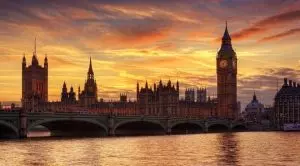 After multiple delays, the UK Government finally released its much-awaited White Paper on Gambling several months ago. Unfortunately, local officials reported that both the UK Gambling Commission (UKGC) and the paper mistakenly presented crucial data figures regarding the country’s gambling addiction rates.
After multiple delays, the UK Government finally released its much-awaited White Paper on Gambling several months ago. Unfortunately, local officials reported that both the UK Gambling Commission (UKGC) and the paper mistakenly presented crucial data figures regarding the country’s gambling addiction rates.
The “problem gambling” rate is one of the long-running indicators used to measure how effective the responsible gambling initiatives of local gambling operators are. It calculates where a certain market stands in regard to the gambling addiction penetration of consumers who are considered at risk of developing gambling problems or already find it hard to control their gambling habits.
For a few years, the major regulator of the UK gambling industry has asserted that, partially because of its oversight, the problem gambling rates in the country are kept low, at around 0.02% since 2021. This is exactly the figure that is now at the heart of the Government’s decision to extend the consultation period.
When the UK Government first published its White Paper on gambling, a 1.5% gambling addiction rate was reported for slot players in the 16 to 24 age group. Following some further inquiries and reviews from gambling industry representatives, British lawmakers were forced to admit there was a mistake with this figure. According to updated data, the 1.5% figure refers only to male players within the 16-24 age group. The actual overall problem gambling rate for persons between 16 and 24 years of age is 0.8% – a figure that is 0.2% less than the figure reported by Health Survey England in 2018.
It is also important to note that the aforementioned rate only applies to slot players and does not reflect the overall gambling addiction rate in the UK, which was reduced from 0.04% to 0.02% between 2018 and 2021.
UK Gambling Sector Given until October 4th to Consider Announced Changes in Problem Gambling Rates
 As a result of the reporting mistake in the problem gambling rate, the UK Government will provide the local gambling sector with time until October 4th to take into consideration the aforementioned changes. The new due date represents a 2-week delay from the originally announced deadline.
As a result of the reporting mistake in the problem gambling rate, the UK Government will provide the local gambling sector with time until October 4th to take into consideration the aforementioned changes. The new due date represents a 2-week delay from the originally announced deadline.
The UK is set to hold its general elections in January 2024, after a few years of political havoc and economic difficulties. Some analysts have warned that the elections could lead to even more changes, with some experts even saying there was a possibility for the incoming Government to fully scrap the planned overhaul of the sector.
Over the years, the UK Gambling Commission has regularly referred to gambling addiction rates when discussing the state of the country’s gambling industry and the possible negative effects it could have on local society. The local regulatory body has noted that the levels of problem gambling have remained constant, although Brits’ gambling engagement and participation rates have increased.
Several months ago, the gambling industry watchdog announced that it planned to establish a new framework for fathoming out more accurate data on gambling-related harm. Such an action could indicate that the previous assertions on the matter given by the UKGC were not as precise as they were supposed to be.
Last month, Andrew Rhodes, the CEO of the Gambling Commission, criticised the gambling industry’s use of the problem gambling rate. At the time, Mr Rhodes further talked about the use of the watchdog’s own Problem Gambling Severity Index (PGSI) which does not offer complete industry-wide standardisation of its interpretation or distribution.
- Author


